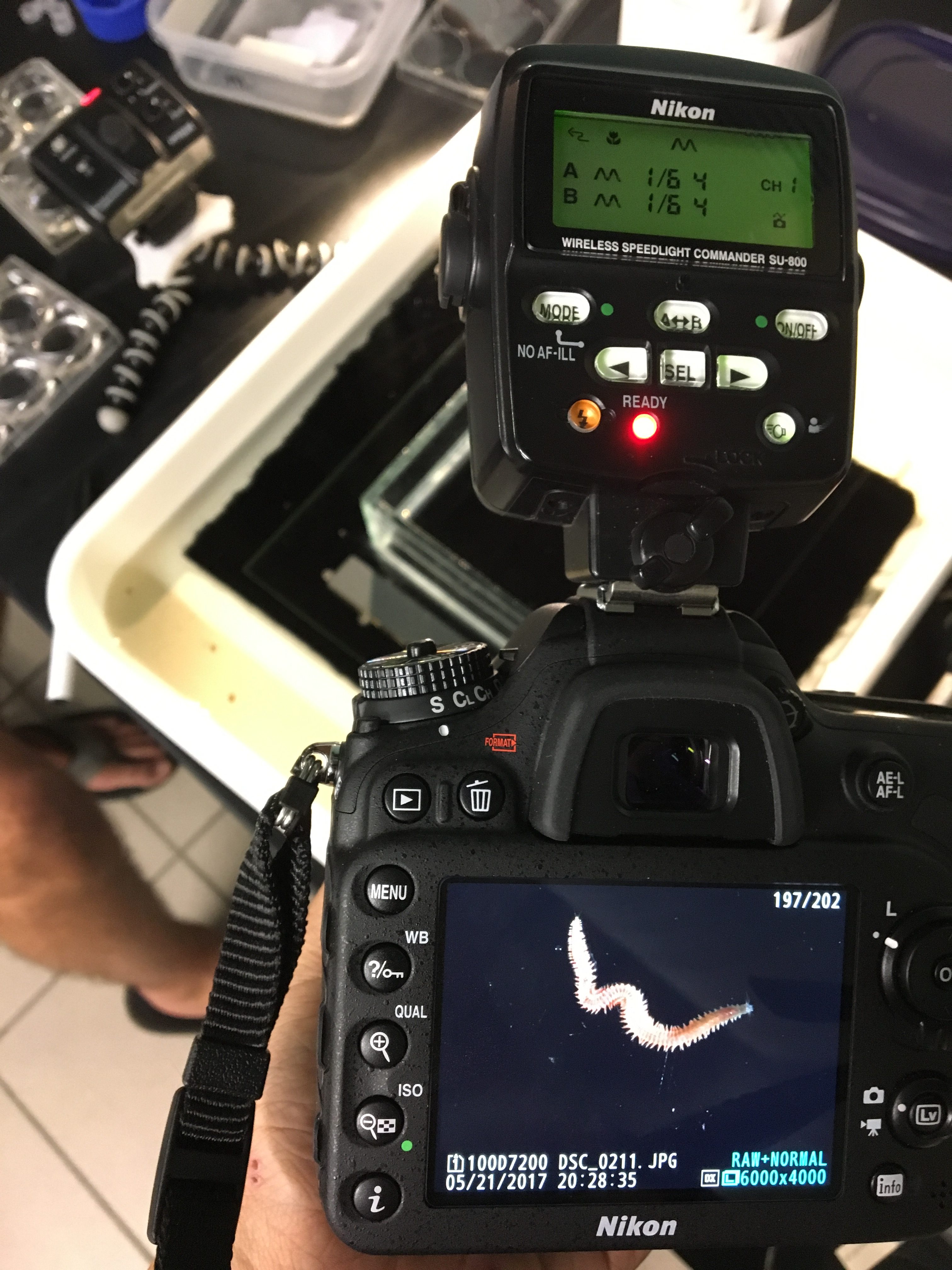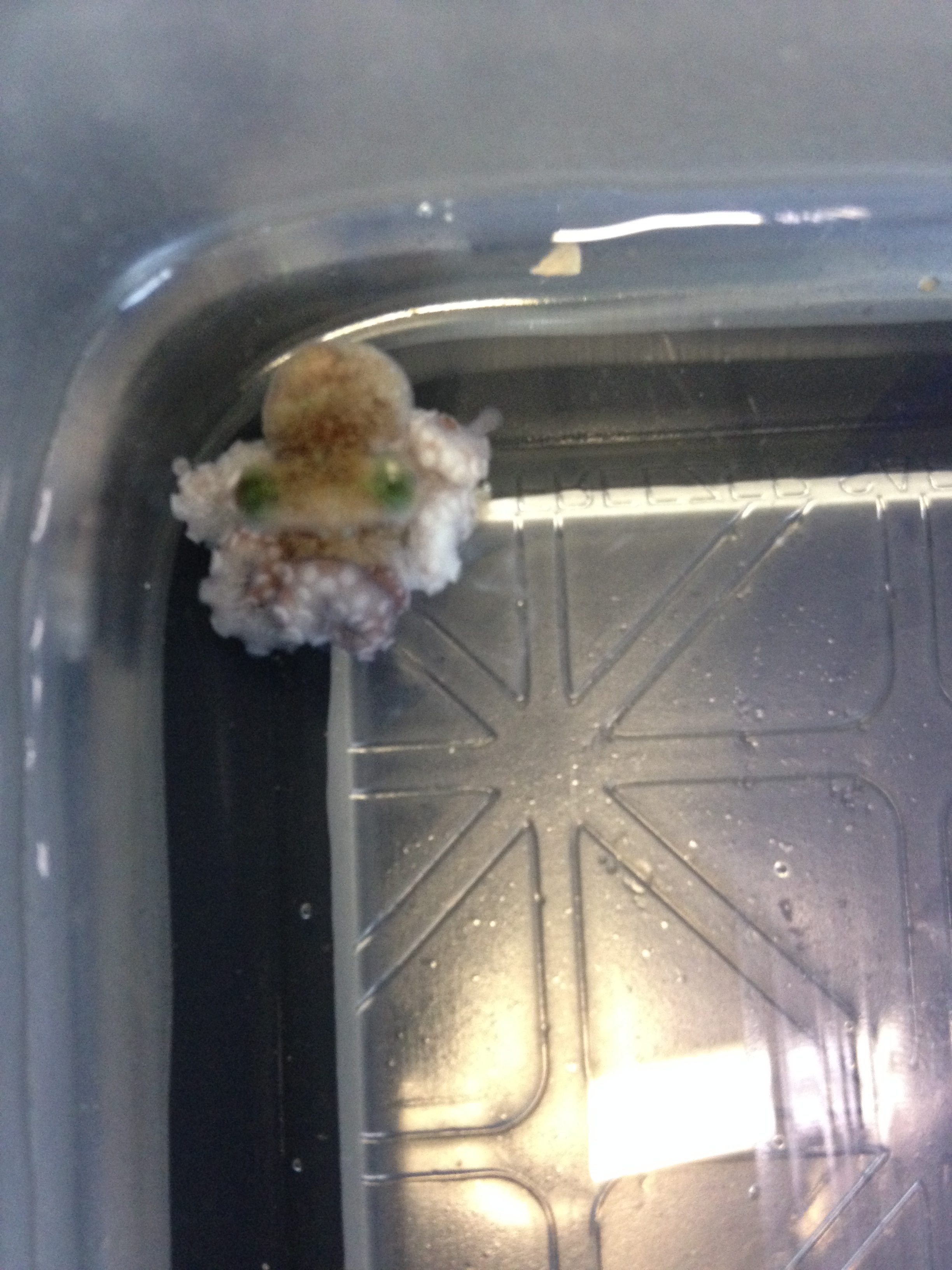I think I just worked a 83-hour week.
Here’s what my schedule looked like:
6:45 a.m. Wake up
7:30 a.m. Get on a boat to one of our mangrove sites to clip pre-selected mangrove roots and take sediment cores
10:30 a.m. Get back to lab to begin processing the roots (finding organisms, scraping mollusks, etc etc)
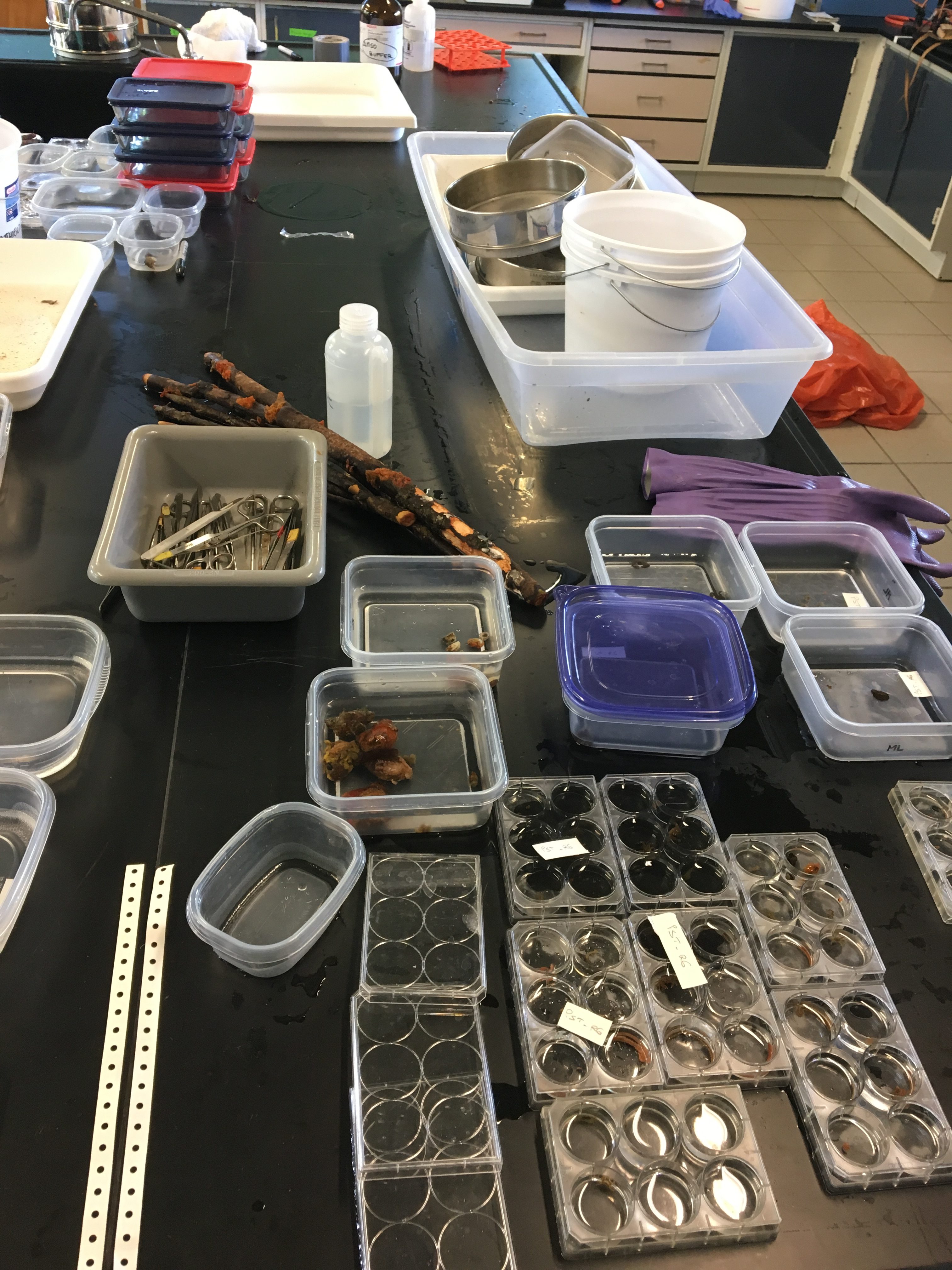
Specimens are collected, seawater is sieved, and we are ready to identify and take pictures of organisms!
4:00 p.m. “Lunch” break
5:00 p.m. to 10:30 p.m. Take apart the root, sort, identify, and take photos of interesting organisms
11:00 p.m. Dinner
The more things that were growing on the mangrove root sample, particularly large hole-y sponges, the more organisms we would find. The microhabitats on mangrove roots are incredible – one day, I saw the small tentacles of an octopus larvae creep out of a mollusk. I grew so attached to it that I couldn’t watch it get preserved in formalin for DNA analysis.
Lifting trash cans full of water into the boat is maybe the hardest part of the day – and it’s how I start some of my mornings. Sometimes they can be up to 50 pounds, which may seem light, but is definitely a back-breaking challenge for me since I have very minimal upper body strength.
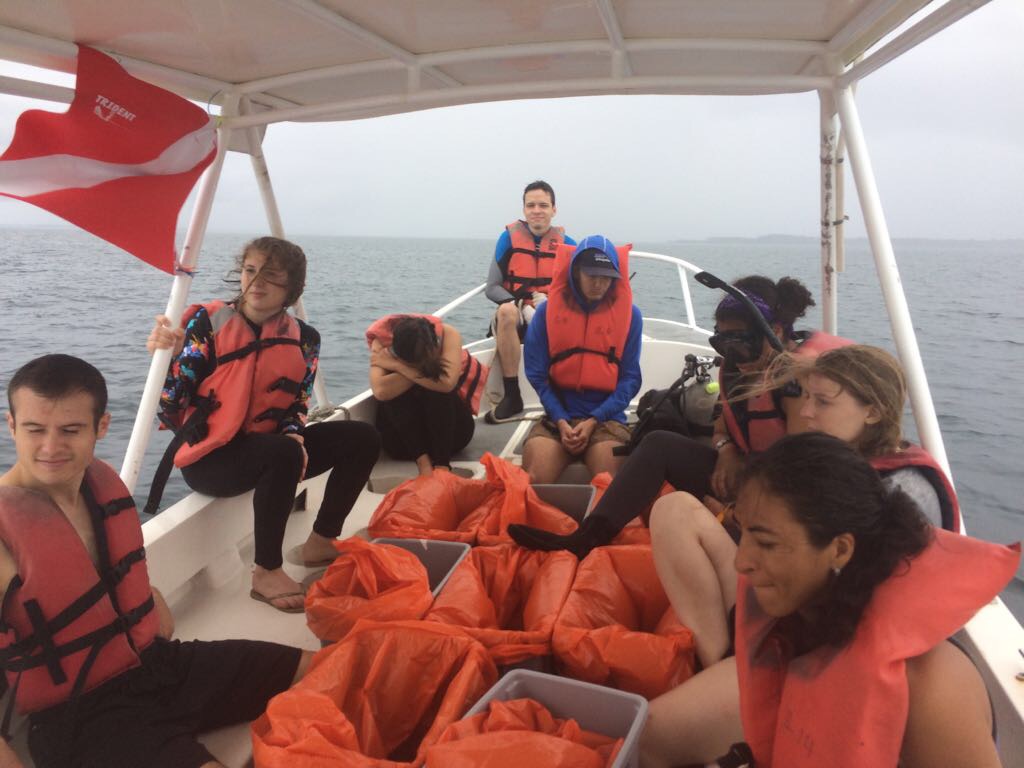
At the end of our morning trip out to a study site, our boat is filled with trash cans filled with seawater and mangrove roots. Sometimes, we also get pelted by cold rain and look kind of miserable. (PC: Matt Leray)
My favorite part of each day is dramatically breaking up the mangrove roots to search for organisms that burrow in the roots. We got $5 machetes to execute this task, which seems appropriate for doing research in the tropics.
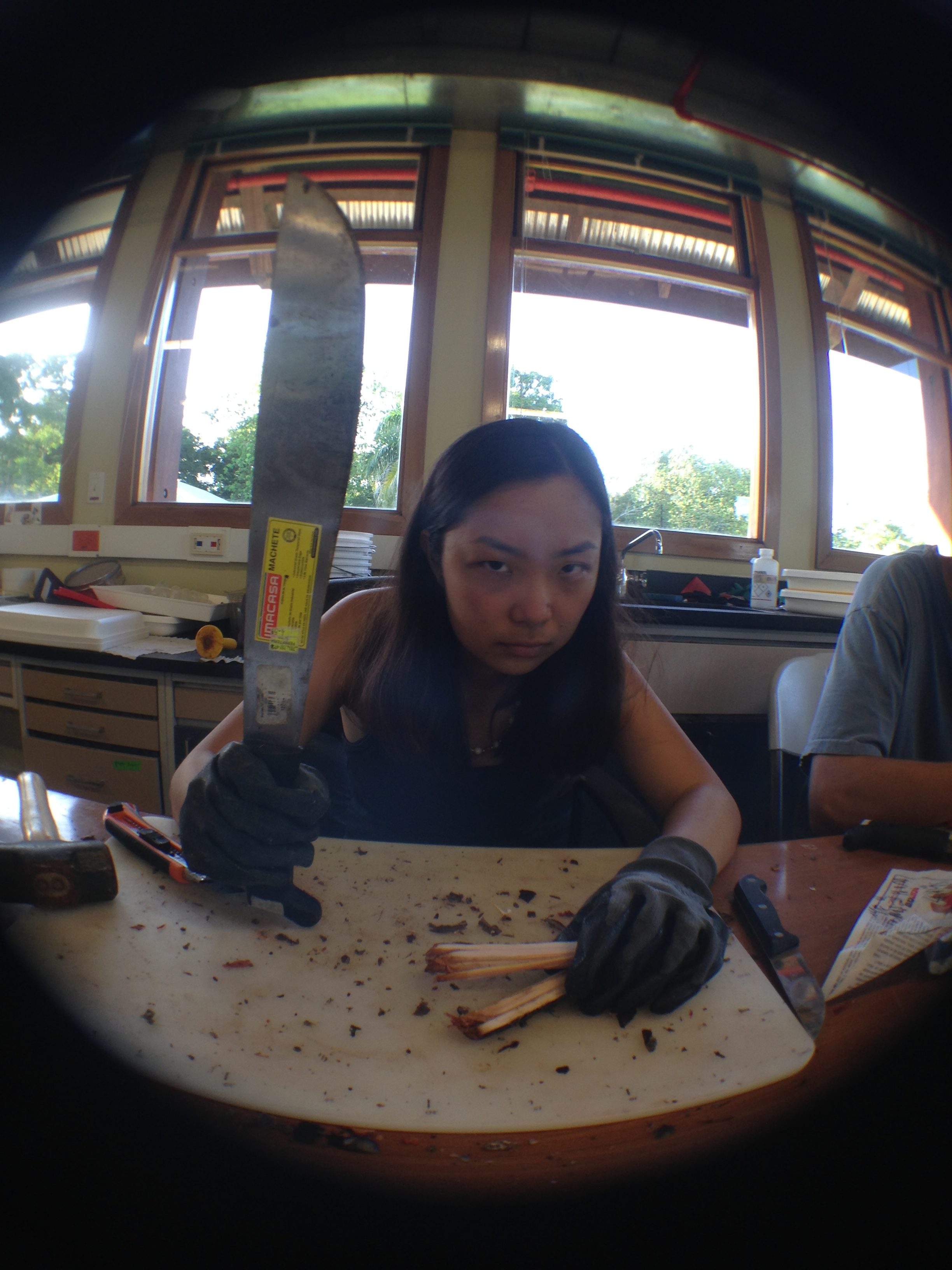
Don’t mess with Texas (in the tropics). Doesn’t the inside of the root kind of remind you of BBQ? (PC: Rosalyn Lam)
Although these next few weeks of collecting mangrove data are probably going to be the some of the most physically intense weeks of my life, it’s nice to think that I’m getting physically and mentally stronger – marine biodiversity field studies are no joke!
